Reviews
Ted Post
USA, 1972
Credits
Review by Budd Wilkins
Posted on 09 October 2013
Source Severin Films DVD
Categories 31 Days of Horror X
Crusading social worker Ann Gentry takes on the bizarre case of the Wadsworth “baby,” a full-grown young man who still wears diapers, sleeps in an outsized crib, and coos and mewls like a newborn. (The soundtrack even overdubs the actor playing Baby, David Manzy, with the sounds of a real infant.) Baby lives with his brassy, chain-smoking mother and two sisters, Germaine and Alba, both of whom take what you would have to call an unnatural interest in the little fellow. Germaine likes to cuddle, only she usually disrobes first, while Alba subscribes to the tenets of tough love perhaps a little too ardently. Convinced that there’s nothing developmentally wrong with Baby, Ann Gentry ultimately unearths the startling fact that he’s been kept in his infantile condition through a regimen of what Gentry undersells in a report to her superior as “negative reinforcement”: anytime Baby attempts to act his age, he gets zapped with an electric cattle prod, while being advised: “Baby doesn’t walk! Baby doesn’t talk!” Unfortunately for the Wadsworth clan, Ann Gentry has an agenda of her own for Baby’s wellbeing, and it doesn’t include them.
The Baby is a nasty little shocker that continually defies expectations. Starting out as wonderfully unhinged exploitation fodder, it soon morphs into a tawdry psychosexual thriller and eventually winds up in full-on slasher territory that’s surprisingly bloody considering the PG rating, complete with one of the most demented twist endings ever committed to celluloid. Given the presence of Ruth Roman as the Wadsworth matriarch, a leading lady from Hollywood’s classic era perhaps best known for her role in Alfred Hitchcock’s Strangers on a Train, you might reasonably suspect that The Baby is another in the seemingly endless cycle of “psycho-biddy” films inaugurated by Robert Aldrich’s What Ever Happened to Baby Jane? But scriptwriter Abe Polsky and director Ted Post are going for something far more unsettling than just campy horror hijinks.
Like most post-Psycho horror films with a contemporary setting, The Baby situates its horrors squarely in the bosom of the nuclear family. The key difference can be found in the underlying psychology. The majority of those films either employ an Oedipal structure (Psycho), wherein the son acts on his urges to possess the mother, or else what might be called an Abrahamic one (The Shining), in which the father seeks to destroy the son. The Baby explores the pathological potentials of the mother figure herself: call it an outsized case of (S)mother Love. Mrs. Wadsworth and Ann Gentry both embody what psychoanalyst Edith Jacobson terms “the bad mother”: a symbolic figure rooted in an infant’s experiences of the impingement and frustration of its libidinal desires.
Both women are ultimately concerned to keep Baby in a stunted and helpless condition, despite Ann Gentry’s initial claims to the contrary. Mrs. Wadsworth wants at all costs to preserve her family structure like an insect trapped in amber; her motivations seem rooted in the material, monetary benefits she receives from Baby’s condition. Ann Gentry’s are more disingenuous. Despite her apparent altruism, what she really wants is to round out her family with the child she could no longer have after an accident left her architect husband brain-damaged and enfeebled. Nor are these the only examples of “working through” a perverted maternal instinct. It’s perfectly clear that sisters Alba and Germaine relate to Baby in ways that betray a libidinal investment, albeit one that’s expressed in diametrically opposed fashion: the whip and the body, or Thantos and Eros, if you please.
And then there’s the outrageous scene in which a young babysitter attempts to pacify Baby’s incessant fussing by letting him suckle at her breast. Her attempt to nurture, in and of itself downright creepy, is ironically enough met with brutality when the Wadsworth ladies walk in on her. In the world according to The Baby, “to mother” is synonymous with “to dominate.” It’s no coincidence that the handful of men in the film are either marginalized and feckless authority figures like Ann’s superior and the doctor in charge of the clinic for handicapped children she visits, or else they’re equally depraved types like Dennis “the menace,” self-professed “skin freak” and “cannibal.” Even he gets nowhere fast with the Wadsworth sisters. His erotic advances spurned by Alba, this would-be carnivore shuffles out the door lamenting, “You make me wanna turn vegetarian.”
Although the psychosexual strata of The Baby remain its bedrock, there’s also some intriguing socioeconomic and political commentary going on. For one thing, the film gets some mileage out of the parallels between the Wadsworth and Gentry domiciles, so much so that one ultimately comes to feel like the dilapidated mirror image of the other. Both are two-story affairs with staircases that feature prominently in the unfolding action. Whereas the seedy Wadsworth place can only boast an outdoor playpen for recreational purposes, the tonier Gentry house is in the process of having a pool put in, that supreme signifier of suburban affluence as witnessed by Frank Perry’s roughly contemporaneous adaptation of John Cheever’s The Swimmer.
There’s also the sense that Ann Gentry stands for Nixon’s not-so Silent Majority, exuding an aura of disdainful superiority and rapacious entitlement. The Wadsworths are forced to cheat the system to keep things together, while Ann Gentry only has to reach out and take what she wants. This point is most forcibly made in a scene set amid the garish gel lights of Baby’s bizarro birthday party. Prompted by an allegedly friendly dart game, she delivers this blithely mocking verdict on the subject of winners and losers: “When you’re a winner, the prospect of losing doesn’t even exist.” Neither, ultimately, do the losers Ann Gentry has to dispose of in order to obtain the domestic tranquility she so desperately desires.
More 31 Days of Horror X
-
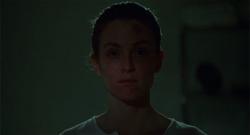
Safe
1995 -

Viy
1967 -
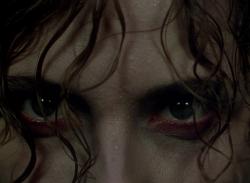
Black Narcissus
1947 -

Possession
1981 -

Carrie
1976 -

The Devils
1971 -
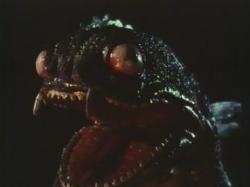
The Sea Serpent
1984 -
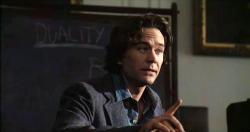
The Dark Half
1993 -
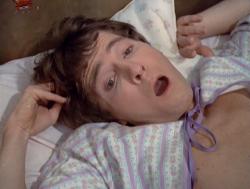
The Baby
1972 -

Hellraiser
1987 -

The White Reindeer
1952 -

The Serpent and the Rainbow
1988 -
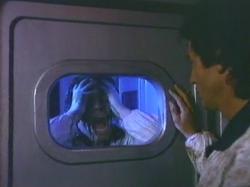
Endless Descent
1989 -
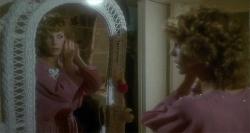
Prom Night
1980 -
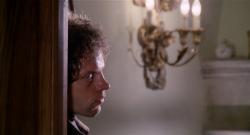
Night Train Murders
1975 -
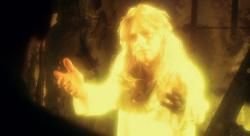
God Told Me To
1976 -
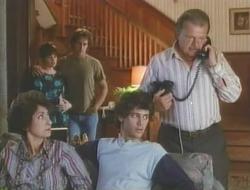
In a Child’s Name
1991 -
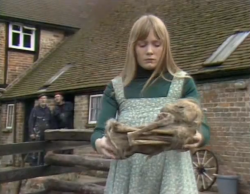
Beasts
1976 -

Prom Night II
1987 -

Men Behind the Sun
1986 -
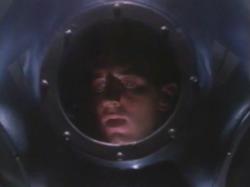
DeepStar Six
1989 -

At Midnight I’ll Take Your Soul
1964 -

They Came Back
2004 -

Buried Alive
1990 -
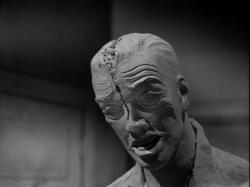
A Bucket of Blood
1959 -
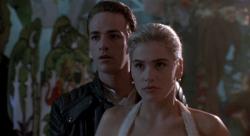
Buffy the Vampire Slayer
1992 -

Night and Fog
1956 -

It Came From Beneath the Sea
1955 -
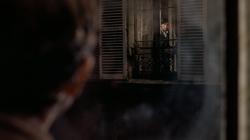
The Tenant
1976 -

Tokyo Gore Police
2008 -

The Rocky Horror Picture Show
1975
We don’t do comments anymore, but you may contact us here or find us on Twitter or Facebook.



